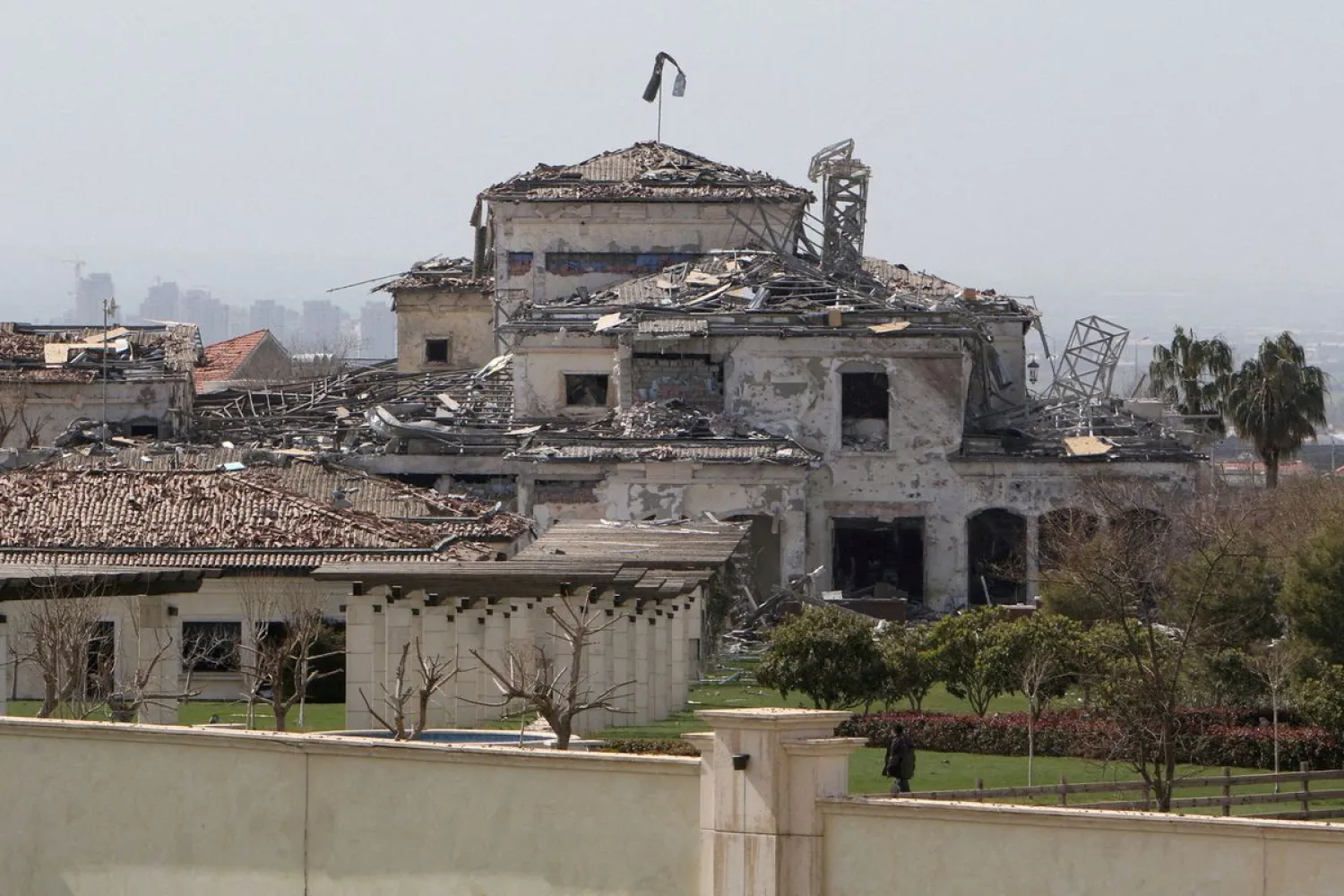A nascent plan for Iraq's Kurdistan region to supply gas to Turkey and Europe - with Israeli help - is part of what angered Iran into striking the Kurdish capital Erbil with ballistic missiles this month, Iraqi and Turkish officials say, according to an exclusive Reuters report.
The March 13 attack on Erbil came as a shock to officials throughout the region for its ferocity, and was a rare publicly declared assault by Iran's Revolutionary Guards Corps (IRGC).
The IRGC said the strike hit Israeli "strategic centers" in Erbil and was retaliation for an Israeli air raid that killed two of its members in Syria.
The choice of target, however, baffled many officials and analysts. Most of the 12 missiles hit the villa of a Kurdish businessman involved in the autonomous Kurdistan region's energy sector.
Iraqi and Turkish officials who spoke to Reuters on condition of anonymity this week said they believe the attack was meant as a multi-pronged message to US allies in the region - but that a key trigger was a plan to pump Kurdish gas into Turkey and Europe, with Israel's involvement.
"There had been two recent meetings between Israeli and US energy officials and specialists at the villa to discuss shipping Kurdistan gas to Turkey via a new pipeline," an Iraqi security official said.
Iran's foreign ministry and the IRGC did not immediately respond to requests for comment.
A senior Iranian security official told Reuters the attack was a "multi-purposed message to many people and groups. It's up to them how to interpret it. Whatever (Israel) is planning, from energy sector to agriculture, will not materialize."
Two Turkish officials confirmed that talks involving US and Israeli officials recently took place to discuss Iraq supplying Turkey and Europe with natural gas, but did not say where they took place.
The Iraqi security official and a former US official with knowledge of the plans said the Kurdish businessman whose villa was hit by the Iranian missiles, Baz Karim Barzanji, was working to develop the gas export pipeline.
The disclosure puts Iran's attack on Erbil in the context of regional players' energy interests, rather than a single Israeli military attack on the IRGC, as widely reported.
Israel's foreign ministry said it was not familiar with the matter. Barzanji did not immediately respond to a request seeking comment.
The office of Iraqi Kurdish President Nechirvan Barzani denied any meetings with US and Israeli officials to discuss a pipeline took place at Barzanji's villa. The Kurds deny there is any Israeli military or official presence in their territory.
Turkey-Israel rapprochement
The Iraqi, Turkish and Western sources spoke mostly on condition of anonymity because they are not allowed to give statements to the media.
They said the move comes as a politically sensitive time for Iran and the region: the gas export plan could threaten Iran's place as a major supplier of gas to Iraq and Turkey while its economy is still reeling from international sanctions.
Efforts to revive a nuclear deal between Iran and the West have faltered in recent weeks, casting doubt on prospects for lifting sanctions on Tehran including on its energy sector.
It also comes as Israel, Iran's biggest enemy in the region, and Turkey are strengthening ties and looking at further energy cooperation as sanctions on Russia over its invasion of Ukraine threaten severe shortages across Europe.
Turkish President Tayyip Erdogan said last month that Turkey and Israel can work together to carry Israeli natural gas to Europe. Erdogan also met Barzani and said that Ankara wants to sign a natural gas supply deal with Iraq.
Iraqi and Turkish officials did not give specific details on the plan to pump gas from Iraqi Kurdistan to Turkey, say how far along it was, or what Israel's role is in the project.
"The timing of the attack in Erbil is very interesting. It seems it was more directed at northern Iraq's energy exports and possible cooperation that would include Israel," one of the Turkish officials said.
"Some talks were held for northern Iraq natural gas exports and we know that Iraq, the United States and Israel were involved in this process. Turkey supports this too," the official added.
The Iraqi security official said at least two meetings to discuss the issue, with USad Israeli energy specialists, had taken place at Barzanji's villa, which he said explained the choice of target for Iran's missile strike. No one was seriously hurt in the attack but the villa was severely damaged.
An Iraqi government official and a Western diplomat in Iraq said that Barzanji was known to host foreign officials and businessmen at his home and that they included Israelis.
The Iraqi security official and the former US official said Barzanji's KAR Group company is working to expedite the gas export pipeline. The new pipeline would eventually connect to one that has already been completed on the Turkish side of the border, the former US official said.
KAR Group could not be immediately reached for comment.
KAR Group built and manages the Kurdish region's domestic pipeline, the Kurdistan presidency's chief of staff Fawzi Harir said. It also owns a third of Kurdistan's oil export pipeline under a lease agreement. The rest is owned by Russia's Rosneft.









